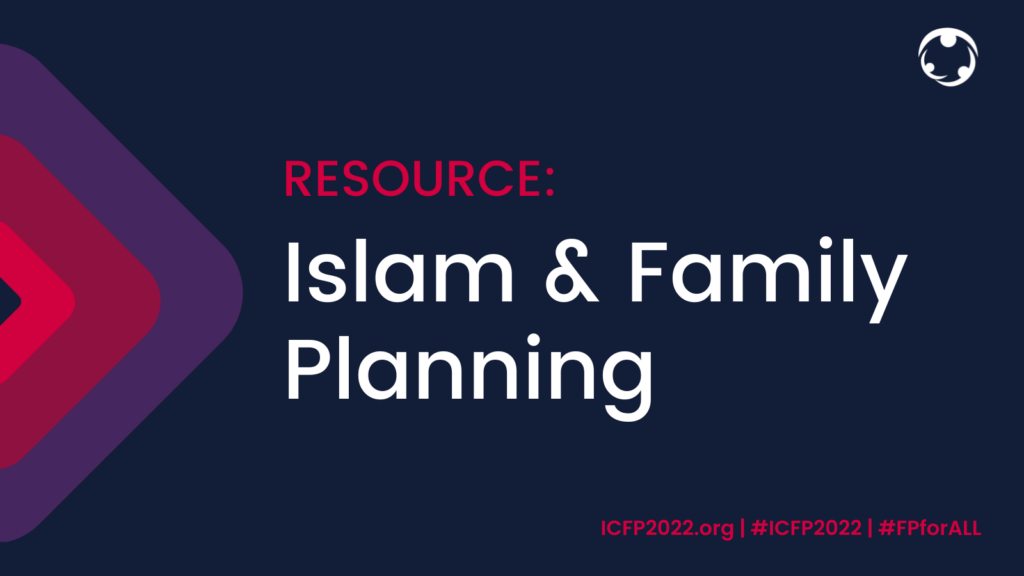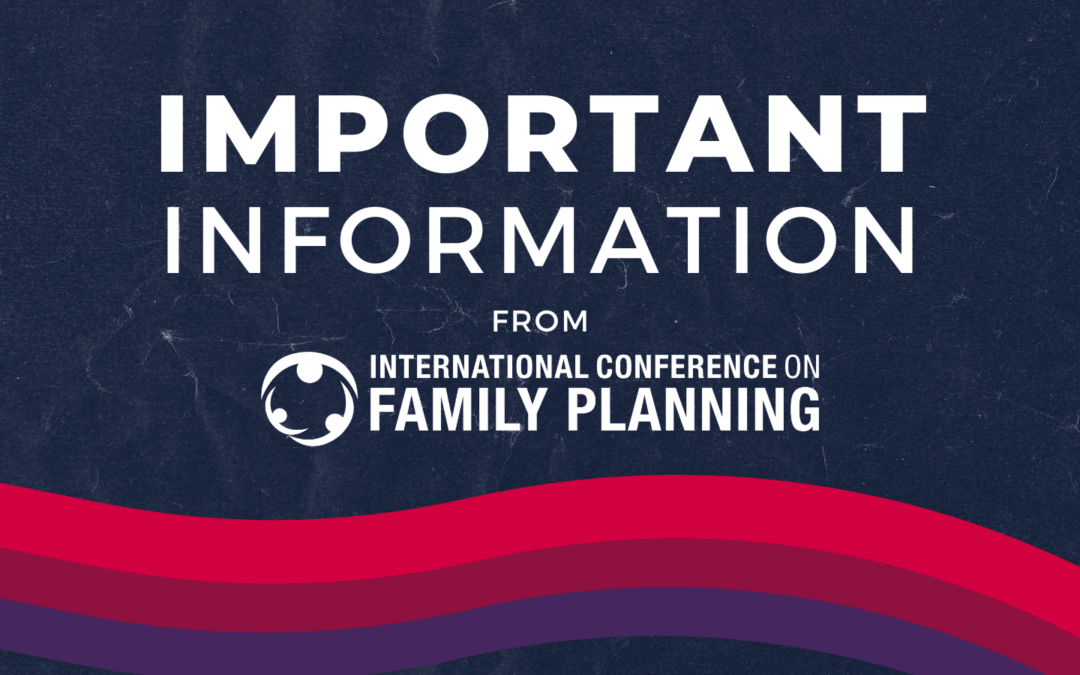Doaa Oraby, MD, PhD – Independent Reproductive Health Consultant, Egypt
There are more than two billion Muslims worldwide. The majority of them live in northern and central Africa, the Middle East, and Southeast Asia.[1]
In Islam, family planning (FP) is mainly addressed in the context of marriage and family. Islam is a religion that underscores the importance of planning in all individual and societal affairs, including planning a family.
The Qur’an and the Prophet’s tradition (Sunnah) have been designated as the foundation of Islamic law. There is no verse in the Qur’an which forbids the husband or wife to space pregnancies or reduce their number according to their physical or economic circumstances.
The Companions of the Prophet were allowed to practice coitus interruptus to ward off health, social or economic risks in addition to preservation of the woman’s well-being and improving the quality of offspring. Health risks need not be life-threatening to be taken into account when considering using family planning.
Opponents have attacked FP by leveraging people’s lack of knowledge of the position of Islam towards it, claiming that any form of FP violates God’s intentions and that Islam calls for a Muslim population that does not stop growing, and the misguided assumption of the larger the population, the greater their power.
Islamic scholars who studied FP have argued that Islam is a religion of moderation and pointed to the principle of “permissibility” in Islam—that is, everything is permitted unless explicitly designated otherwise in the Qur’an or in the Prophet’s tradition (Sunnah).
The ability to raise children correctly is an inherent requirement of marriage in Islam which advocates the perpetuation of the nation based on quality rather than quantity.
Family planning is an important health and development issue as well as a human rights issue. Islam should not be considered a barrier in the endeavor of Muslim countries and societies reaching their development goals and improving the health of their women and children. Qur’anic texts and prophetic traditions do not forbid the use of contraception.
The gap between Muslims and their doctrine regarding FP is attributed to misinterpretations that were propagated, especially among lay people.
Raising awareness of how Islam perceives and conceptualizes FP and addressing the distorted interpretations and questions about religious acceptability will promote the uptake of FP programs in Muslim countries.
—
[1] https://worldpopulationreview.com/country-rankings/muslim-population-by-country Accessed on September 18, 2022
Bibliography:
- Amirrtha Srikanthan, Robert L. Reid. Religious and Cultural Influences on Contraception. Journal of Obstetrics and Gynecology Canada 2008.
- Hasna F. Islam, Social Traditions and Family Planning. Social Policy &Administration Vol. 37, No. 2, 2003
- Herbert S. Social norms, contraception and family planning. GSDRC Helpdesk Research Report 1249. Birmingham, UK: GSDRC, University of Birmingham.2015
- Mir AM and Shaikha GR. Islam and family planning: changing perceptions of health care providers and medical faculty in Pakistan. Global Health: Science and Practice. 2013.
- Omran AR. Family Planning in the Legacy of Islam. London: Routledge, 1992
- Roudi-Fahimi F. Islam and Family Planning. Washington, DC: Population Reference Bureau, 2004.
- Sundararajan et al. How gender and religion impact uptake of family planning: results from a qualitative study in Northwestern Tanzania. BMC Women’s Health 2019






